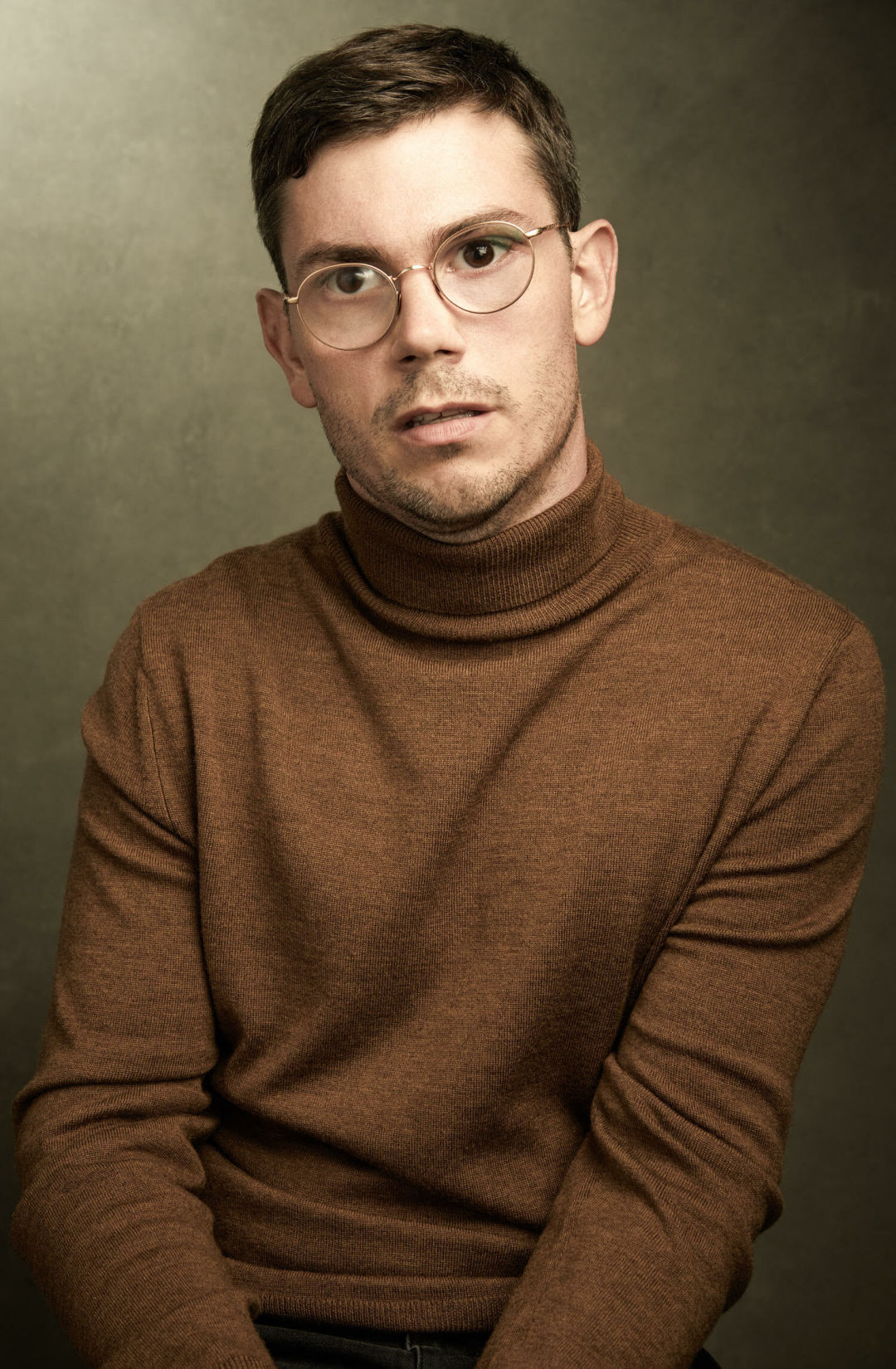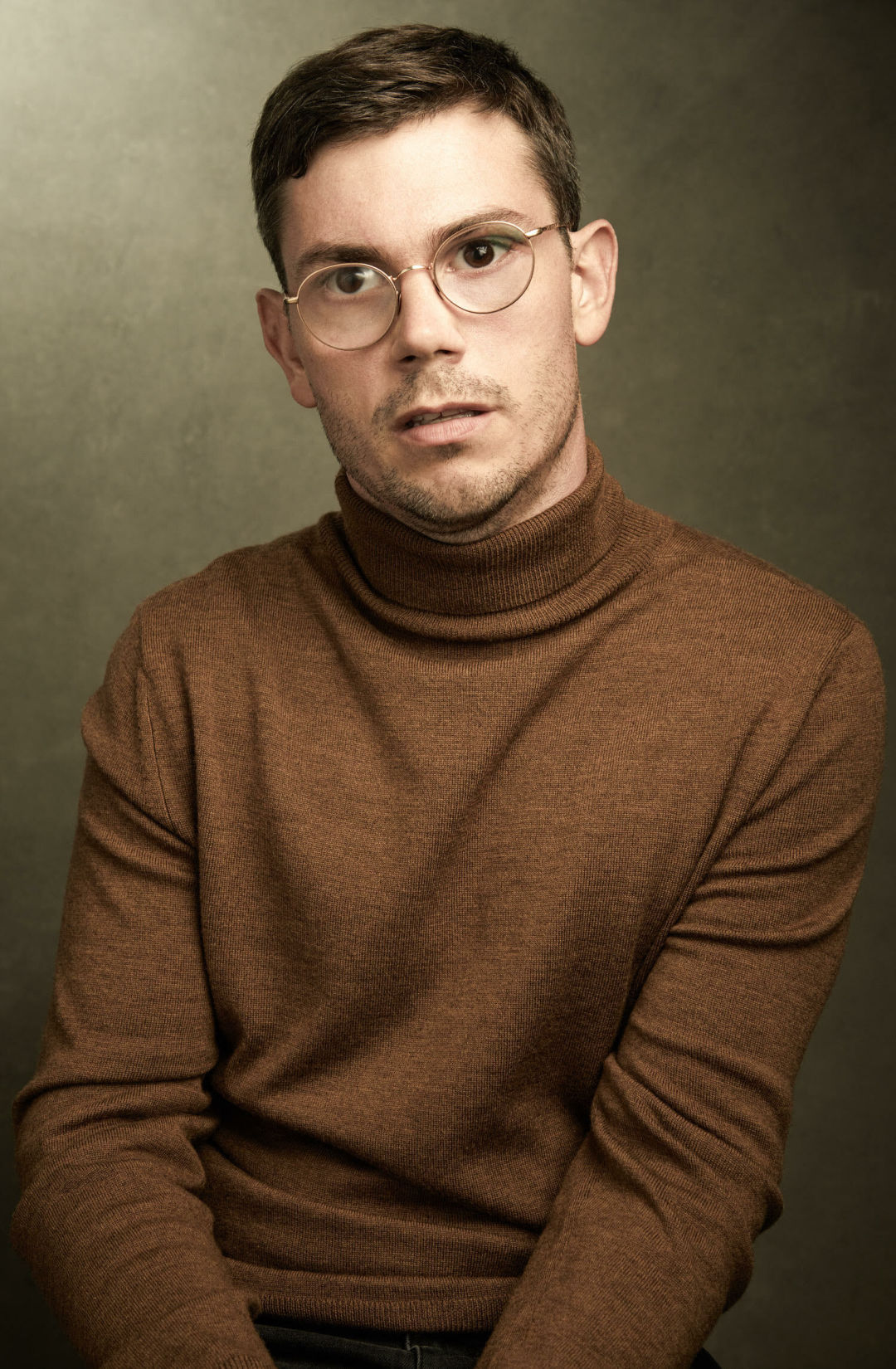
“Variety show” is a dirty phrase, but what do you call a production by a troupe of artists from myriad disciplines touring around the country? Pop-Up Magazine doesn’t (we’re pretty sure) involve any magic, ventriloquists, or juggling—it’s more like a magazine come to life than a traveling circus.
As if flipping through the pages of your favorite glossy-paged monthly brought in audio and video components, Pop-Up Magazine’s live show adds depth to the words of its storytellers through various media. At the Schnitz on Wednesday October 26, acts that span the storytelling gamut will be set to a backdrop of live music and animation, film, photography, and more. Actor and writer Ryan O’Connell (creator of Netflix’s Special, author of Just by Looking at Him) is this issue’s headliner. This will be O’Connell’s first time performing in the show, and he admits he’s a little fuzzy on the end product himself: “It seems like a buffet of different mediums on stage. It’s a comedy show one minute, a play the next, and a concert the next, which is really exciting.”
For this tour, novelists, film makers, poets, musicians, radio producers, and more were saddled with the extremely open-ended task of writing love letters. Names beside O’Connell’s include Chanel Miller, cartoonist and author of the New York Times bestselling memoir Know My Name, Rachel Cusick, whose voice you may recognize from the podcast/WYNC radio show Radiolab, and Sarah Kay, a spoken-word poet and founder of project VOICE, a traveling poet-education program.
Across TV, film, fiction, and nonfiction, O’Connell writes from his personal experience as a gay man with cerebral palsy, never sparing in sharply humorous and unabashed recounts of deeply personal experiences. His hope is to destigmatize on–screen portraits of both disabled characters and queer ones.
We caught up with O’Connell ahead of the show to chat about the plan for his set, his recently-published novel—and its upcoming film adaptation—and what’s next for him.
Our conversation has been condensed and edited for clarity.
Have you been to Portland before?
I mean, the food scene is just impeccable. Which is very much my journey, because I am a foodie bitch from hell. One of the biggest accomplishments of my career so far was doing a GrubStreet diet. That was my Anne Hathaway “it came true” moment.
Portland is so LOL to me because it’s like, everyone is in line to buy doughnuts and they’re wearing performance fleece and athletic wear. They’re wearing Patagonia and consuming 10,000 calories, then going to literally do a 10-mile hike. There’s a very masochistic quality to it that I enjoy. I feel like I’m only calling it out because I see it in myself.
I’m also a total sugar junkie and need to eat dessert every single night. So, in order for me to do that, one must exercise almost every single day.
How did you get involved with Pop-Up Magazine?
I had just finished doing press for my book, and I had a hankering to do some kind of live performance. I didn’t quite know what that was yet because I don’t want to do stand up, but I knew I wanted to do something in that realm. I’m in a place now where I just want to do things that challenge me and that I haven’t done before.
I’ve been fortunate to do a lot, and now I’m just sort of like, ‘Okay, what scares me the most? I want to go do that.’ Lena [Pop-Up Magazine’s producer] slid in my DMs and immediately I was like, ‘Oh, this is exactly what I want.’ I wanted to go on an adventure. I wanted to go to Nashville. I want to go to LA. I wanted to go all these places and just soak up the energy of the different audiences. It seems really exciting to me.
What do you have planned for the show?
So, it’s a love letter to being a slut. I am a late-in-life slut; I started being a slut I would say when I was filming Queer as Folk [earlier this year] in New Orleans. I’m also in a long-term relationship. Yes, it’s possible. It’s called being gay, Google it. And, basically, I have just learned a lot about myself through being a slut. I wanted to explore that, and what’s great about Pop-Up Magazine is that you can take an idea that you’ve been kind of noodling, and you don’t quite know what the right home for it is yet—in a way, it’s like workshopping.
What is the relationship between this story and your novel?
People do think [Just by Looking at Him] is auto fiction, which I understand—I get the impulse behind that. But it’s really not. Emotionally, the book is very true. There’s not one thought that Elliot—the main character—has that I haven’t had. I do feel like he is an extension of myself, but the circumstances he finds himself in, and the things that actually happen to him are completely made up.
It started as something that felt very cut and pasted from my diary and then it evolved into something much bigger. I feel like, because I was not tethered to the truth, and fact, I was able to, in a strange way, be more honest than I ever was in my first book, which was technically a memoir.
The book is being adapted as a movie, right?
We actually sold the film rights and the book simultaneously. So, the second I finished the book, I got to write the screenplay, which was really interesting. I mean, I wouldn’t recommend it—having them be so close together—because I think I got confused. I would get like different medium whiplash, where I’d be like, ‘Wait, is this in the book? Or is this in the movie?’
Why do you think books are being adapted so quickly these days?
We live in a creatively bankrupt time where everyone is so fearful of new, original ideas, that we’ve all just become beholden to [intellectual property], and that’s all anyone cares about.
But at the same time, your idea is pretty new and original.
Let’s put it this way. If I wrote this just as a movie, I can pretty much guarantee you that it would never get made.
I’m very much in my gay disabled era right now. There are things I keep going back to. Disability is a big, big theme—especially when interwoven with sex and issues of desirability. In my book, my character Elliot goes on a rumspringa, but it’s with a sex worker. So it’s very transactional, which I think puts a shield against any potential rejection. There’s a ceiling with it.
I wound up going on my own rumspringa afterwards and I made a point of it being unpaid. That was really, really important for me—to put myself out there in a way that could result in me being rejected, and not being absolutely destroyed by that.
It’s been very, very personal. And I think once the movie is done, I am kind of excited to like, go do other things.
The end of this era?
I thought so. And then I wrote this piece for Pop-Up Magazine. And all of a sudden, I’m like, ‘Ooh, this is really interesting.’
Because, what I’m going through, a lot of my gay friends were like, ‘Yeah,’ they did that. You’ll see this in the piece, but, it’s unfortunate that people’s sluttiest periods often coincide with them having a lot of self-doubt. They’re using sex as a tool for validation. Being a slut at 36 is so different, because I love myself. I love my body. I know who I am.
I haven’t really seen that before. I’ve always seen it take this dark undercurrent like, ‘Oh, you must not love yourself,’ or whatever. Maybe that’s a reflection of puritanical values, but once I started working on this piece, I was like, ‘Oh, this is like the seed of something much larger, I think.’
So, I hope I’m kind of done. I’m sure my boyfriend will be like, ‘Maybe you should go write a Marvel movie.’
Pop-Up Magazine: Love Stories
7:30 P.M., Wed, Oct 26, Arlene Schnitzer Concert Hall, $39–90








